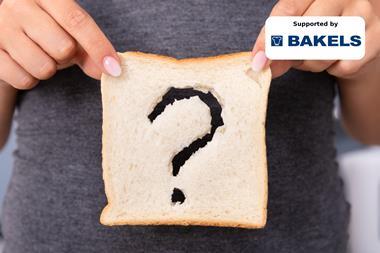As butter prices continue to rise, alternative fats suppliers are relishing the opportunity to prove their products can offer equal performance at lower costs
Butter hit the headlines in July after Arla boss Peder Tuborgh told Radio 4 listeners there would be a shortage of the stuff by Christmas.
This was hardly news to the nation’s bakers, as butter prices had been climbing since last year; from a low of £1,825/metric tonne (mt) in March 2016, they had trebled to £5,747/mt by the end of August 2017.
The reason was a drop in supply after many dairy farmers reduced their herd size or left the market following two years of oversupply, price cuts and reduced profitability. Even now, with prices high, UK processors are opting to process milk into cheese rather than butter, according Mintec market analyst Michael Liberty.
“To understand this, we need to look at the co-product of butter churning –skimmed milk powder (SMP),” he wrote in last month’s British Baker. “Low prices of SMP, brought on by weak demand and high stocks, have reduced the overall profitability of churning butter.”
Given such fluctuation in butter pricing, bakers may be considering alternative ingredients – many of which claim to offer the functionality of butter at a lower cost.
Olenex, for example, says its Bakelite Clean Label can be used in virtually any application where butter would be used.
“There is no issue in replacing the structural functionality of butter in bakery products,” says Olenex UK brand and marketing manager Andrew Marriott. While he admits that replacing the full flavour of butter can be difficult, he notes that, in most applications, there is an additional flavour masking butter, such as chocolate or fruit.
He adds: “Bakelite’s greater temperature tolerance means it can be stored at ambient temperatures, used directly, and is easier to use on a hot day.”
Supplier AAK says its butter alternatives offer a “substantial” saving on raw material spend – even when butter is trading at its historical average price – and offer benefits that can further reduce costs.
“The processing benefits in comparison with butter continue to be an attractive proposition for manufacturers,” says AAK UK industrial customer innovation head Gary Hughes, adding that its alternatives follow the same melt curves as butter.
“AAK alternatives are also available dairy-free, making them suitable for not only the free-from market, but mainstream products looking to appeal to a wider consumer audience,” he adds.
Carotino points out the health credentials of its own butter alternative, Baker’s Friend, which contains no cholesterol or trans-fat.
“Baker’s Friend costs no more than a good-quality margarine, so is still significantly cheaper than butter, even at ‘normal’ butter prices,” says marketing manager Melanie Nicholson. “It performs much better than a margarine in quality terms, so will still be an attractive option even if butter prices drop.”
Carotino claims bakers can save over 50% on typical butter costs in certain applications. Synergy says its flavour products – based on stable dairy emulsions formulated to create the same sensory experience as real butter – can reduce butter levels by up to 50% in cakes and cookies, without negatively affecting taste.
“Our unique, high-impact butter flavour topnotes provide additional intensity and specific flavour direction for the application,” says Synergy dairy new product development manager Ciaran Lynch, adding that the mouthfeel of its ingredients plays a key role in consumer acceptance of reduced-butter products.
With commodity experts suggesting butter prices will remain high into next year, suppliers of alternatives may find bakers knocking on their doors.
Cutting down on fat - the clean label way
Sugar is no longer the ‘enemy’… well, no longer the only enemy.
Excess calories – not just excess sugar – are the root cause of childhood obesity, declared Duncan Selbie, chief executive of government agency Public Health England (PHE) last month.
Such a change in government stance could bring renewed interest in cutting fat, overshadowed in recent years by sugar reduction. And, given consumer trends, many manufacturers will want that fat reduction to be clean label.
“We have seen that sugar reduction has become a much greater focus than fat since the UK sugar intake guidelines were revised,” says Andrew Marriott, UK brand and marketing manager at Olenex. “From a health perspective, this is not necessarily a bad thing, as international nutritional recommendations no longer recommend a low-fat diet for improved heart health.”
Saturated fat should be the target for reduction, he adds, not total fat. Olenex’s own Bakelite Premium contains around 28% saturated fat versus the 52% saturated fat in butter.
And when it comes to tapping demand for natural products, the brand includes a clean-label variant, made with oils and fats, water, salt and a natural flavour.
“Provided you have good manufacturing procedures with consistent control of quality parameters and regular checking, it is relatively simple to remove emulsifiers from a cake margarine formulation,” explains Marriott.
“The difficulty lies in adding a butter-like, bake-stable flavour from a natural source. We have spent years ensuring we have the best possible natural butter flavour for our clean-label products.”
There is a balancing act between lowering fat and going e-free when looking at clean-label fat solutions, says Gary Hughes, head of industrial customer innovation at AAK UK. “The main challenge when going e-free, with ingredients such as pastry fats, is maintaining the same key product attributes in the finished product such as shelf life, appearance and eat quality,” he adds.
Carotino and Synergy also offer clean-label products, with Carotino’s Baker’s Friend made from environmentally sustainable red palm oil, proprietary butter aroma, and a natural rosemary antioxidant.
Synergy, meanwhile, says all its products can be declared as natural flavours. “Together with our parent company Carbery, owned by four Irish Dairy co-operatives, we have more than 50 years’ experience in the dairy industry,” says Synergy dairy new product development manager Ciaran Lynch.
“We use natural flavours combined with proprietary dairy ingredients emanating from our ongoing dairy R&D activity.”
Hughes at AAK says the business has also seen interest from the baking industry in the use of speciality oils such as coconut, flaxseed and pumpkinseed as consumer awareness of health and nutrition grows.





























No comments yet